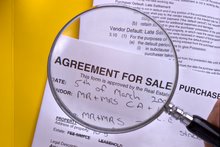Mortgage Underwiter Eliminates Potential Fraud
If you are thinking of applying for a loan package to purchase a property, try and view the situation from your lenders perspective as well as your own.
Prior to giving approval for your loan package, most lenders will be concerned not only with your ability to service the loan (repayments and interest payments), but also how you plan to source the funding for your initial down payment and closing costs.
The mortgage lender a cash flow statement for your budgeted income and outgoings as well as an historical cashflow statement covering the last two or three months.
You may need to supply details includeing: savings accounts, checking accounts, certificates of deposit, money market funds, mutual funds, stock statements, retirement accounts etc.
The mortgage lender might want to see what major transactions have been made and what money has been moved between accounts during that time. They will be particularly interested in any large withdrawals and large deposits.
The person approving the loan (the mortgage underwriter) will probably require a complete audit trail (paper trail) of all deposits and withdrawals. The mortgage underwriter may also want to see deposit receipts, cancelled checks.
Although this can be an exasperating process for the lender, having to find the necessary documentation, it is done for very good reason. It is all about quality control and the mortgage underwriter will be trying to identify or eliminate the potential for fraud.
Depending on the rules in the country where you live, it is usually a requirement that loans completely document the source of all funds.











No comments:
Post a Comment